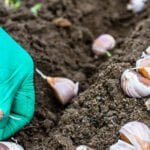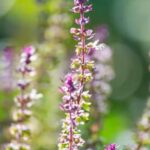Fish fertilizer has gained popularity among gardeners for its numerous benefits in vegetable gardens. This organic fertilizer is derived from fish waste and contains a wealth of nutrients that can significantly enhance the growth and productivity of vegetable plants. In this article, we will explore what fish fertilizer is, why it is beneficial for vegetable gardens, and how to effectively use it to maximize its potential.
Fish fertilizer is made from the remains of processed fish or fish byproducts, such as bones, organs, and scales. These ingredients are fermented or dried to create a concentrated liquid or powdered form that can be easily applied to the soil. The key advantage of fish fertilizer lies in its high nutritional value. It is packed with essential nutrients like nitrogen, phosphorus, and potassium, which are vital for plant growth and development.
When used in vegetable gardens, fish fertilizer provides several benefits. Firstly, it promotes vigorous plant growth by stimulating root development and increasing nutrient uptake. Secondly, it enhances the overall health of plants by fortifying their immune systems against diseases and pests. Additionally, fish fertilizer enriches the soil with organic matter and beneficial microorganisms that improve soil fertility and structure over time.
As we delve deeper into this article, we will discuss the nutritional value of fish fertilizer compared to other types of fertilizers and explore different application methods for optimal results. We will also address common mistakes to avoid when using this type of fertilizer and provide expert tips on how to make the most out of it in your vegetable garden.
So if you’re curious about whether fish fertilizer is good for your vegetable garden, keep reading to discover its potential benefits.
Understanding the Nutritional Value of Fish Fertilizer
Fish fertilizer is a nutrient-rich organic fertilizer derived from fish waste and carcasses. It is an excellent source of essential nutrients that are beneficial for vegetable plants. One of the key advantages of fish fertilizer is its high content of nitrogen, phosphorus, and potassium (NPK), which are essential for plant growth and development.
- Nitrogen: Fish fertilizer contains a significant amount of nitrogen, which plays a crucial role in enhancing vegetative growth, leaf production, and overall plant vigor. Nitrogen promotes the development of strong stems and green foliage, making it ideal for leafy vegetables like lettuce, spinach, and kale.
- Phosphorus: Phosphorus is essential for root development, flowering, and fruit production. Fish fertilizer typically contains a good amount of phosphorous, making it beneficial for vegetable crops such as tomatoes, peppers, cucumbers, and beans. Adequate phosphorous levels lead to stronger root systems and improved nutrient uptake.
- Potassium: Potassium helps regulate various metabolic processes in plants and enhances their ability to withstand environmental stressors such as drought or disease. By incorporating fish fertilizer into your vegetable garden, you can provide this vital nutrient to your plants, resulting in improved fruit quality, resistance to pests and diseases, and overall plant health.
In addition to these primary nutrients (NPK), fish fertilizer also contains trace elements such as calcium, magnesium, sulfur, iron, manganese, zinc, copper, boron, and molybdenum that are essential for proper plant growth. These micronutrients are often overlooked but play a critical role in enhancing soil fertility and ensuring optimal nutrition for vegetable plants.
Overall,the nutritional value of fish fertilizer makes it an excellent choice for vegetable gardens as it provides a balanced combination of macro – and micronutrients necessary for healthy plant growth.
Fish Fertilizer vs. Other Types of Fertilizers
When it comes to fertilizing vegetable gardens, there are various options to choose from. However, fish fertilizer stands out among the rest due to its numerous advantages over traditional synthetic fertilizers and other organic alternatives. Let’s take a closer look at why fish fertilizer is a superior choice for vegetable gardens.
One of the key advantages of using fish fertilizer is its high nutritional value. Fish emulsion, which is derived from the remains of fish after oil extraction, contains essential nutrients such as nitrogen, phosphorus, and potassium (NPK), along with trace minerals and micronutrients. These nutrients are readily available and easily absorbed by plants, making them ideal for promoting healthy growth and development in vegetable plants.
Furthermore, fish fertilizer offers a balanced nutrient ratio that supports optimal plant growth throughout the growing season. This is in contrast to many synthetic fertilizers that tend to have imbalanced ratios or focus on specific nutrients without considering the overall nutritional needs of plants. Similarly, while other organic fertilizers may be beneficial in some aspects, they often lack the comprehensive range of nutrients provided by fish fertilizer.
| Aspect | Fish Fertilizer | Synthetic Fertilizer | Other Organic Alternatives |
|---|---|---|---|
| Nutrient Availability | Easily absorbed by plants due to its organic nature. | Synthetic compounds can take longer for plants to absorb. | Nutrient availability can vary depending on the source and processing. |
| Soil Health | Improves soil fertility, structure, and overall health. | May negatively impact soil health over time due to excessive salts or chemical build-up. | Can enhance soil health to some extent but may lack certain essential nutrients. |
| Sustainability | Fish emulsion is derived from by-products of the fishing industry, making it a sustainable choice. | Production of synthetic fertilizers requires non-renewable resources and energy-intensive processes. | The sustainability of organic alternatives can vary depending on production methods and sources. |
Application Methods
Fish fertilizer provides a valuable source of nutrients for vegetable plants, but it’s important to use the right application methods to ensure optimal absorption and effectiveness. There are several different ways to apply fish fertilizer in vegetable gardens, including foliar feeding, soil drenching, or through drip irrigation.
Foliar feeding is a method where fish fertilizer is applied directly to the leaves of the plants. This method allows for quick absorption of the nutrients by the plant’s foliage. To use this method, dilute the fish fertilizer according to the recommended dosage on the product label and spray it onto the leaves using a handheld sprayer or sprayer attachment on a garden hose. Be sure to thoroughly cover all sides of the leaves for maximum nutrient uptake.
Soil drenching involves applying fish fertilizer directly to the soil around the base of each plant. This method ensures that the nutrients penetrate into the root zone and are readily available for uptake by the plants. To soil drench with fish fertilizer, dilute it according to instructions and pour it slowly around each plant, making sure not to create pooling or run-off.
Drip irrigation is another effective way to apply fish fertilizer in vegetable gardens. This method involves adding fish fertilizer directly into your drip irrigation system so that it is distributed evenly throughout your garden. Consult your drip irrigation system manual or contact a professional if you need assistance in setting up this application method.
It’s important to note that regardless of which application method you choose, following proper dosage guidelines and timing is critical. Over-application can lead to nutrient imbalances or even burn plant roots, while under-application may not provide enough nutrients for optimal growth.
Common Mistakes to Avoid
Over-Applying Fish Fertilizer
One common mistake that gardeners often make when using fish fertilizer is over-applying it to their vegetable gardens. While fish fertilizer can be highly beneficial for plants, too much of it can actually harm them. It is important to follow the recommended dosage instructions provided on the product label or by a gardening expert. Over-application can lead to an accumulation of excess nutrients in the soil, resulting in nutrient imbalances and potential damage to the plants.
Using the Wrong Concentration
Another mistake that gardeners make is using the wrong concentration of fish fertilizer. Different vegetables have different nutrient requirements, so it is essential to understand the specific needs of your plants before applying any fertilizer. Using the wrong concentration may not provide adequate nutrients for your plants or could potentially cause nutrient imbalances. It is always advisable to consult with a knowledgeable gardening professional or refer to reliable resources for guidance on suitable concentrations for different types of vegetables.
Not Considering Environmental Factors
When using fish fertilizer, it is crucial to consider environmental factors such as temperature, humidity, and soil conditions. These factors can significantly impact the effectiveness and efficiency of fish fertilizers. For instance, during periods of high temperatures or heavy rainfall, more frequent application may be necessary because nutrients are washed away faster from the soil. On the other hand, during cooler seasons or droughts, reducing the frequency of application might be appropriate to prevent nutrient leaching and waste.
By avoiding these common mistakes when using fish fertilizer in vegetable gardens, gardeners can ensure optimal growth and health for their plants while maximizing the benefits that fish fertilizers provide.
Improving Soil Health with Fish Fertilizer
Fish fertilizer is not only beneficial for vegetable plants but also plays a crucial role in improving soil health. One of the key advantages of fish fertilizer is its ability to enhance soil fertility.
Fish products, such as fish emulsion or fish meal, are rich in nitrogen, phosphorus, and potassium (NPK), which are essential nutrients for plant growth. When these nutrients are added to the soil through fish fertilizer, they provide a balanced and readily available source of nutrition for vegetable plants.
In addition to providing crucial nutrients, fish fertilizer also contributes to improving soil structure. The organic matter present in fish products helps retain moisture in the soil and promotes proper drainage, allowing air circulation within the root zone. This improved structure creates an optimal growing environment for vegetables and prevents issues such as waterlogging or compaction that can hinder plant growth.
Furthermore, fish fertilizer enhances overall soil health by stimulating beneficial microbial activity. The organic compounds found in fish products act as food sources for beneficial bacteria, fungi, and other microorganisms that exist naturally in the soil. These microorganisms break down organic matter into simpler forms that can be easily absorbed by plants.
They also contribute to nutrient cycling within the soil, making essential elements more available to vegetable plants. Ultimately, this microbial activity supports a healthy soil ecosystem and helps create an environment where vegetables can thrive.
To fully harness the benefits of fish fertilizer in improving soil health, gardeners should consider incorporating it into their regular fertilization routine. Applying fish fertilizer at recommended dosages and frequencies will gradually improve soil fertility, structure, and overall health over time. Gardeners may choose from various application methods such as foliar feeding – applying the liquid fertilizer directly onto the leaves – or through drip irrigation systems for efficient nutrient distribution throughout the garden.
By using fish fertilizer and taking steps to improve soil health, gardeners can ensure that their vegetable plants receive optimal nutrition while developing robust root systems – leading to healthier plants with increased resistance to diseases, pests, and environmental stressors. Ultimately, this approach can result in improved productivity and higher yields from vegetable gardens.
Addressing Concerns
Fish fertilizer is an excellent choice for vegetable gardens due to its numerous benefits; however, there are often concerns and myths surrounding its use. One common concern is the odor associated with fish fertilizer. While it is true that fish fertilizer has a distinct smell, this odor dissipates relatively quickly after application.
Additionally, mixing the fertilizer with soil or covering it with mulch can further help reduce any lingering odors. It’s important to remember that fish fertilizer’s potential drawbacks in terms of smell are overshadowed by its numerous advantages for plant growth and soil health.
Another concern many individuals have is regarding the sustainability of fish used for making fish fertilizer. It’s crucial to choose fish fertilizers made from sustainable sources or those that utilize byproducts from the fishing industry. By doing so, you can ensure that you are not contributing to overfishing or harming marine ecosystems. Many reputable brands prioritize sustainable practices and obtain their raw materials from certified fisheries.
Furthermore, another myth surrounding fish fertilizer is that it negatively impacts the environment when applied excessively or improperly. The truth is that when used according to recommended dosages and application methods, fish fertilizer poses minimal risk to the environment. In fact, by using an organic product like fish fertilizer instead of synthetic fertilizers, you are reducing your contribution to water pollution and minimizing harm to beneficial organisms in the soil.
To address these concerns and create a more sustainable approach to using fish fertilizer, it’s essential to follow best practices and guidelines provided by manufacturers or gardening experts. This includes using appropriate concentrations recommended for specific plants and adhering to proper application techniques such as foliar feeding or soil drenching. By understanding these guidelines and following them conscientiously, you can enjoy the benefits of fish fertilizer while minimizing any potential negative environmental impacts.
Tips and Recommendations
Dosages
When it comes to using fish fertilizer in vegetable gardens, it is important to follow recommended dosages to ensure optimal results. The dosage may vary depending on the specific brand and concentration of the fish fertilizer, so it is crucial to carefully read the instructions provided by the manufacturer. Typically, a general guideline is to use 1-2 tablespoons of fish fertilizer per gallon of water. However, always refer to the label for accurate dosing instructions.
Timing
Timing plays a significant role in maximizing the benefits of fish fertilizer in vegetable gardens. It is best to apply fish fertilizer during the early stages of plant growth or when they are actively producing fruits or vegetables. This allows the plants to absorb and utilize the nutrients effectively. Applying fish fertilizer too late in the growing season may result in minimal benefit as most of the plant’s energy will be focused on fruit production rather than nutrient absorption.
It is also advisable to avoid applying fish fertilizer during periods of excessive heat or drought, as it may increase stress on plants or lead to burn due to evaporation before absorption occurs. Aim for cooler temperatures and moist soil conditions when applying fish fertilizer for optimal results.
Frequency of Application
The frequency of application will depend on several factors such as soil quality, plant type, and specific requirements. As a general rule, it is recommended to apply fish fertilizer every four weeks throughout the growing season. However, some plants may have different needs and might benefit from more frequent applications.
Additionally, it is important not to overapply fish fertilizer as it can lead to nutrient imbalances or even burn the plants’ roots. Always start with a conservative approach and monitor your plants’ response before increasing application frequency. Regularly observe your plants for any signs of nutrient deficiency or excess and adjust your application accordingly.
By following these tips and recommendations for using fish fertilizer in vegetable gardens, you can ensure that your plants receive the right amount of nutrients at the right time, leading to healthier plants and a bountiful harvest. Remember to always consider the specific requirements of your vegetable plants and adapt your fertilization practices accordingly.
Case Studies and Success Stories
One success story comes from Sarah, a passionate gardener who had been struggling to improve the productivity of her vegetable garden for years. After trying various fertilizers and techniques with little success, she decided to give fish fertilizer a try based on a recommendation from a fellow gardener. To her surprise, the results were astounding. Sarah noticed that her vegetable plants grew faster, produced more abundant fruit, and had an overall healthier appearance.
Another gardener, Mark, had been using synthetic fertilizers for years but realized that they were not only expensive but also detrimental to the environment. He switched to using fish fertilizer after learning about its sustainable and eco-friendly properties. Mark was thrilled to find that his vegetable garden thrived with the use of fish fertilizer. Not only did he see an increase in plant growth and flowering, but he also observed that his vegetables tasted better than ever before.
These real-life stories are just a glimpse into the countless success stories of gardeners who have experienced the benefits of using fish fertilizer in their vegetable gardens. The rich nutrients present in fish fertilizer provide essential elements like nitrogen, phosphorus, potassium, as well as trace minerals needed for plant growth and development. This balanced combination promotes healthy root systems, vigorous vegetative growth, improved flowering, and increased fruit or vegetable production.
In addition to enhancing productivity and yield, many gardeners have also noticed improved plant resilience against pests and diseases when using fish fertilizer. This is attributed to the natural oils present in fish fertilizer that act as a repellent against common garden pests such as aphids or spider mites. Furthermore, the organic matter in fish fertilizer helps improve soil structure by increasing moisture retention capabilities and promoting beneficial microbial activity.
The use of fish fertilizer has proven to be successful for countless gardeners seeking natural alternatives to synthetic or traditional organic fertilizers. With its numerous benefits and positive impacts on plant growth, it’s no wonder that fish fertilizer has become a popular choice among vegetable gardeners looking to maximize their harvests and cultivate healthy, thriving plants.
| Success Story | Results |
|---|---|
| Sarah | Increased productivity, healthier plants |
| Mark | Increase in plant growth, improved taste of vegetables |
Conclusion
In conclusion, fish fertilizer is a highly beneficial option for vegetable gardens. Throughout this article, we explored the nutritional value of fish fertilizer and how it can enrich the soil and promote healthy plant growth. Compared to traditional synthetic fertilizers or other organic alternatives, fish fertilizer offers numerous advantages that make it an ideal choice for gardeners.
One of the key benefits of fish fertilizer is its rich nutrient content. Fish emulsion contains essential nutrients such as nitrogen, phosphorus, and potassium, along with trace minerals and micronutrients. These nutrients are readily available to plants, promoting vigorous growth and development. Additionally, fish fertilizer also improves soil fertility and structure by enhancing microbial activity and increasing organic matter content.
When using fish fertilizer in vegetable gardens, it is important to avoid common mistakes such as over-applying or using the wrong concentration. Careful attention should be paid to application methods, including foliar feeding, soil drenching, or drip irrigation. By following best practices and expert recommendations on dosage, timing, and frequency of application, gardeners can maximize the benefits of fish fertilizer while avoiding any drawbacks.
Overall, fish fertilizer proves to be a valuable tool in improving soil health and enhancing vegetable garden productivity. Its positive impact on overall soil fertility combined with its natural composition makes it a sustainable choice for environmentally conscious gardeners.
When used correctly and consistently with proper care taken towards potential odor issues associated with its use, fish fertilizer can yield bountiful harvests and contribute to a thriving vegetable garden. So if you’re looking to nourish your vegetables naturally and promote healthy growth, consider incorporating fish fertilizer into your gardening routine.
Frequently Asked Questions
How do you use fish fertilizer in a vegetable garden?
Fish fertilizer can be applied to a vegetable garden by diluting it with water according to the instructions on the product label, typically in a ratio of 1 part fish fertilizer to 4 parts water. The diluted mixture can then be used to water the plants in the garden, ensuring that the roots absorb the nutrients. Alternatively, fish fertilizer can be added directly to the soil around the base of the plants.
It is best to apply fish fertilizer when the soil is moist to enhance absorption. However, it is essential not to overuse fish fertilizer as excessive amounts can burn plant roots and cause damage.
How often should I use fish fertilizer on my vegetable garden?
The frequency of using fish fertilizer on a vegetable garden depends on several factors such as the specific needs of the plants and soil conditions. Generally, applying fish fertilizer every two weeks during active growth periods, such as spring and summer, can provide sufficient nutrients for healthy plant development. However, it is crucial to monitor plant growth and adjust accordingly.
If you notice signs of nutrient deficiency or slow growth, more frequent applications may be necessary. On the other hand, if plants are growing vigorously and appear healthy, less frequent applications might suffice.
Do tomatoes like fish fertilizer?
Yes, tomatoes generally respond well to fish fertilizer due to their high nutrient requirements. Fish fertilizer provides an excellent source of nitrogen, phosphorus, potassium, and various trace elements that are beneficial for tomato plants’ growth and fruit production. Nitrogen promotes leafy green growth while phosphorus supports root development and flower formation. Potassium aids in overall plant health and helps improve fruit quality and taste.
The natural organic compounds present in fish fertilizer also contribute to enhancing soil fertility over time. However, it is essential not to over-fertilize tomatoes with fish fertilizer as this can lead to excessive vegetative growth at the expense of fruit production or cause other issues like nutrient imbalances. Following recommended application rates based on product instructions will ensure tomatoes receive adequate nourishment without any negative effects.

If you’re looking to get into vegetable gardening, or are just looking for some tips on how to make your current garden better, then you’ve come to the right place! My name is Ethel and I have been gardening for years. In this blog, I’m going to share with you some of my best tips on how to create a successful vegetable garden.





